Iranian Politicians Join Cosmetic Surgery Boom
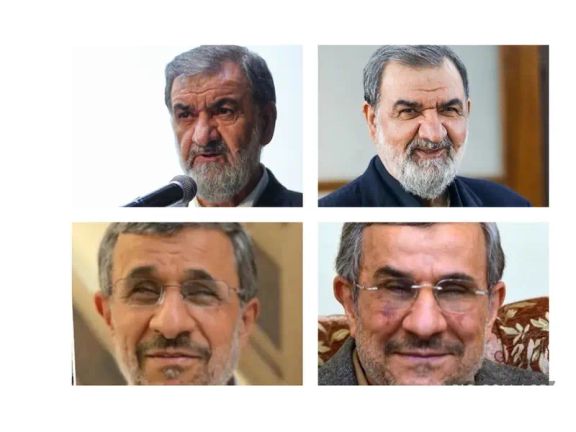
A recent expose by Tehran's Hamshahri newspaper has revealed that Iran's top officials and politicians such as the former president, Mahmoud Ahmadinejad, are joining Iran's cosmetic surgery boom.

A recent expose by Tehran's Hamshahri newspaper has revealed that Iran's top officials and politicians such as the former president, Mahmoud Ahmadinejad, are joining Iran's cosmetic surgery boom.
Others in the expose include Mohsen Rezaei, a former IRGC commander with deep political ties, whose recent appearances suggest significant cosmetic alterations.
The revelation has sparked discussions about the hypocrisy and vanity of state figures who traditionally promote a facade of austerity and religious and moral purity to the public.
According to the International Society of Aesthetic Plastic Surgery, Iran ranked 12th highest for cosmetic surgery procedures as of 2022. That climbed from 18 in 2016, with 80 percent of patients women.
Rhinoplasty is the most common procedure, followed by liposuction, eyelid surgery, abdominoplasty and breast augmentation.
So common has the practice become that last year, interior minister Ahmad Vahidi said people who had radically changed their appearance through cosmetic procedures would need to apply for new ID documentation.
“The authentic Iranian face is being distorted through invasive procedures,” Babak Nikoumaram, chair of the Iranian Society of Plastic and Aesthetic Surgeons told the Financial Times earlier this year. “Incongruous western beauty standards are forced upon Iranians.”
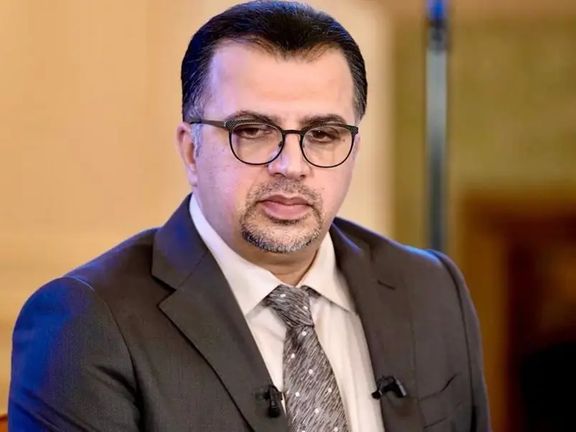
Mehran Abbasian, a reporter for Iran International TV, has been moved to a secure location following threats to his life, after similar threats against the channel’s journalists in the UK beginning in 2022.
The Swedish police have classified the threats as "serious and real," underscoring the dangerous conditions faced by those critical of the Iranian government, at home and abroad.
It comes on the back of revelations last month of Iran recruiting Swedish gangs to carry out such plots abroad, including on Jewish and Israeli targets. Israeli intelligence agency, Mossad, also confirmed the reports saying Swedish gangs were part of a Europe-wide plot from Tehran against Israeli embassies.
The threats against Iran International staff have become a recurrent issue, stemming back to 2022 when London's Metropolitan Police revealed plots against staff in London. Last year, the threats reached a climax with the UK's MI5 saying it could no longer protect the team, forcing a temporary relocation to the US.
Kazem Gharibabadi, head of the Iranian Judiciary's Human Rights Headquarters, recently branded the network as "terrorist" and directly threatened its staff. The statement followed shortly after condemnation from UN experts regarding the ongoing threats and acts of violence against Iran International's personnel, including a violent knife attack on presenter Pouria Zeraati.
The Swedish Ministry of Foreign Affairs has recently acknowledged that Iran's terror plots across Europe and its involvement with criminal networks in Sweden are “deeply concerning.”
"It is deeply concerning that a foreign power, in this case, Iran, has allegedly used criminal networks to commit or instigate crimes in Sweden. The Ministry for Foreign Affairs has summoned Iran’s chargé d’affaires to stress how seriously we are taking this information," the Swedish Ministry for Foreign Affairs’ Press Office told Iran International on Sunday.
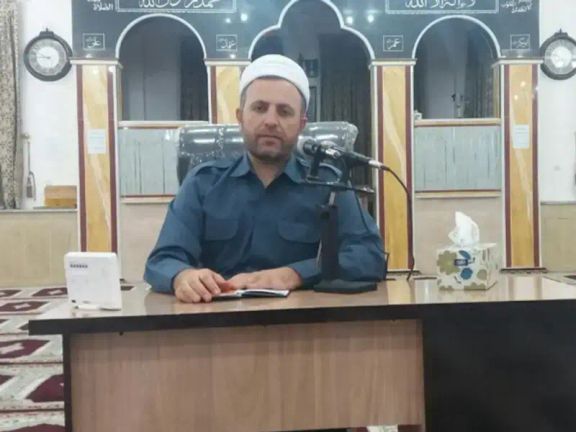
After interventions from Sunni clerics, the death sentence for Mohammad Khezrnejad, a dissident Sunni Kurdish cleric has been commuted to life imprisonment.
Khezrnejad, a vocal critic of governmental policies, was initially detained on November 19, 2022, following his speech at a memorial for Asad Rahimi, a victim of the protests in Bukan, where he openly criticized the government's suppression of protests following the death in morality police custody of Mahsa Amini. The death of the Kurdish-Iranian was the trigger for the biggest anti-government uprising since the founding of the Islamic Republic.
The Urmia Revolutionary Court, after holding Khezrnejad in temporary custody for over a year, convicted him on December 20, 2023, for "corruption on earth," sentencing him to death. Additional charges included 15 years for "damaging the integrity or independence of the country," and one year for "propaganda against the system." The sentences were later affirmed by Branch 41 of the Supreme Court, presided over by Judge Ali Razini.
Mizan, Iran's judicial news agency, claims a displayed remorse and pledge for better conduct from Khezrnejad, alongside pleas from prominent Sunni scholars, led to the reduction of his sentence to life imprisonment.
During his detention, reports from the Hengaw Human Rights Organization highlighted that Khezrnejad endured severe torture, resulting in coerced confessions.
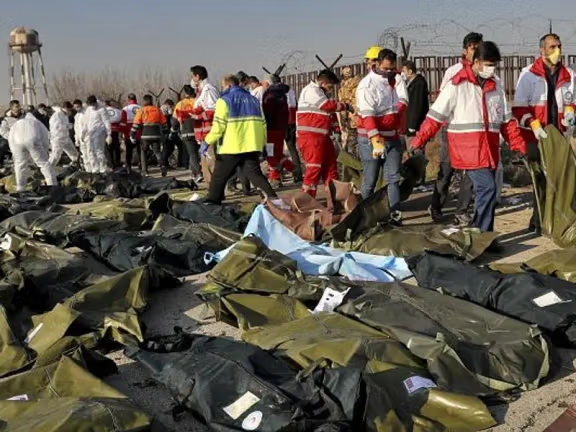
A court in Ontario has found that Ukraine International Airlines failed in its duty to cancel flight PS752 in 2020 that took off from Tehran amid military activity and was downed by the IRGC killing 176.
This judgment does not absolve the IRGC from responsibility in the downing of the aircraft. The Ontario Superior Court of Justice earlier labeled the missile strike by the IRGC as "terrorist activity" and dismissed claims by Iran that the downing was a mere "human error."
The judgement on Monday found, that despite the IRGC's deliberate firing of two missiles at the airliner, the company could not prove that it acted according to standards to cancel the flight amid potential military activities in the early hours of January 8, 2020.
“I declare that the defendant has failed to prove, on a balance of probabilities ... that the plaintiffs’ damage was not due to the negligence or other wrongful act or omission of the carrier or its servants or agents; or that such damage was solely due to the negligence or other wrongful act or omission of a third party,” said Justice Jasmine Akbarali on Monday.
Legal expert Paul Miller commented on the verdict, stating, "This verdict sends a strong message to international airlines that passenger safety must always be their top priority. Airlines must take proper measures to avoid operating in conflict zones.”
The judgment now means that under the Montreal Convention, UIA cannot limit compensation to $180,000 USD per passenger but must pay full compensatory damages for the fatalities, a small victory for the families of victims who are still seeking justice for Iran's act of shooting down the plane.
Iran failed to close its airspace during the hours when it launched the attack and was expecting a US retaliation. Later, when it was proven the airliner was downed by two IRGC missiles, Iranian officials argued that it was human error due to the tense situation prevailing in the aftermath of the attack on US bases.
The incident claimed the lives of 176 people, including 63 Canadians, 10 Swedes, and 82 Iranians. Flight PS752 was hit by two IRGC air-defense missiles shortly after departing from Tehran's Imam Khomeini International Airport.
When it was proven the airliner was downed by two IRGC missiles, Iranian officials argued that it was human error. They have also prevented an independent investigation of the incident and disclosing full details. For three days after the incident, they hid the fact that the plane was shot down, insisting that the crash was an accident.
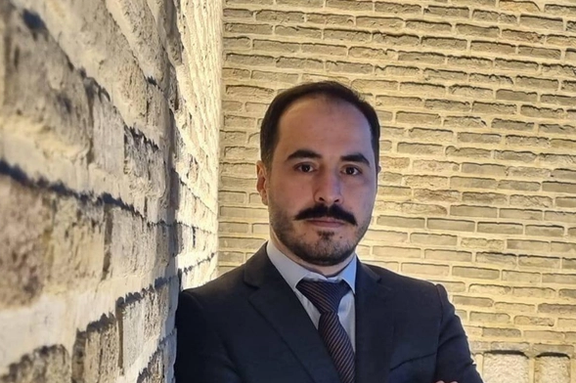
Former political prisoner Hossein Ronaghi has alleged that security forces threatened him with sexual assault and confiscated his belongings while he was traveling from Tabriz to Tehran on Sunday.
In a social media post on Monday, the activist described the incident: “What stood out for me was the public threat of rape by a young man in plain clothes at the Tabriz airport, along with the deputy prosecutor of Tabriz breaking the law and stealing my belongings!”
As he described on X, the national emblems of the Lion, Sun, and "Woman, Life, Freedom" movement caught the attention of agents, who ridiculed him. Woman, Life, Freedom became the slogan for the nationwide protest in Iran in 2022 following the death of Mahsa Amini in police custody. Over 550 protesters were killed during the uprising.
Ronaghi had to flee his home in September 2022 as security agents raided his home while he was speaking with Iran International about unfolding protests.
The blogger was waiting to board the flight in the transit lounge when officers of the Islamic Revolutionary Guard Corps (IRGC) approached him and told him they need to ask questions and inspect his bag one more time. He was then interrogated, and his belongings were searched.
The agents told him he could not leave unless he surrendered all his belongings, claiming that the deputy prosecutor of Tabriz had ordered the confiscation of his mobile phone, laptop, electronic devices, and identity documents.
Describing the conversation he had with one of the agents, Ronaghi wrote: “Suddenly, in a harsh tone, he threatened to rape me, saying: ‘It's a pity that Islam has tied my hands. Otherwise, I would have shown you what it means to suffer (as a result of rape)!
Ronaghi wrote he replied to the plainclothesman: Do you think these threats scare us? Or does it compel us to be silent? No one is afraid of you anymore!" Ronaghi wrote on X.
Ronaghi's brief detention at the airport and confiscation of his belongings could be part of regime actions to intimidate dissidents during the tightly controlled presidential election on June 28. He is a well-know dissident and has published opinion articles in Western media.
In the past decade, the dissident activist has been arrested several times and has staged hunger strikes in prison. He was first arrested, along with his brother Hassan, in the aftermath of the disputed presidential elections in 2009 for assisting journalists and political activists to circumvent internet censorship. In addition, he was charged with insulting the Supreme Leader Ali Khamenei in his blog posts.
His most recent arrest was in September 2022 during the Woman, Life Freedom protests. He was detained along with his lawyers in front of the Evin Prison prosecutor's office and subsequently tortured. In protest, he went on a hunger strike. Iranian authorities later released Ronaghi on bail.
According to human rights sources, previous rounds of torture had resulted in him losing one kidney, with his remaining kidney functioning at only 60 percent.
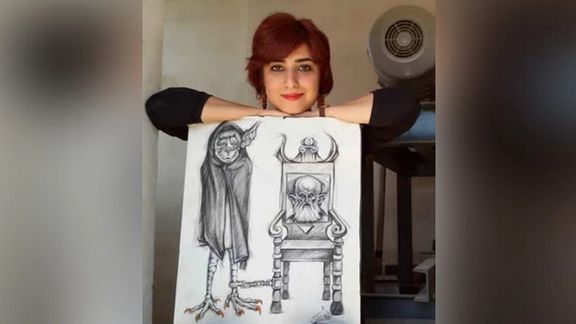
The Revolutionary Court of Tehran has handed down a six-year prison sentence to Atena Farghadani, a cartoonist targeted for her critique of the government.
According to her attorney, Mohammad Moqimi, Farghadani has been behind bars since her arrest on April 13, charged with “insulting sacred values and propagating against the ruling system". Farghadani received five years for the former and an additional year for the latter. Moqimi blasted the proceedings as a "sham trial" in a post on the X, denouncing the judiciary's manipulation of charges to secure the harshest possible sentence.
Farghadani came to a head when she was seized by security forces while attempting to display her artwork on a street wall outside Supreme Leader Ali Khamenei’s compound in response to the suppression of her art exhibition and the continuous harassment by security personnel.
Post-arrest, she was subjected to torture in a Revolutionary Guard-operated safe house, before being transferred to Evin prison.
Her imprisonment has drawn criticism from global human rights entities, including PEN America, Cartooning for Peace, and the Cartoonists Rights Network International, which have collectively decried her arrest and the punitive actions against her, urging for her immediate release.
The crackdown on artists has worsened since the 2022 uprising with some even receiving the death penalty, as seen in the recent case of Toomaj Salehi, a dissident rapper who is now on death row.